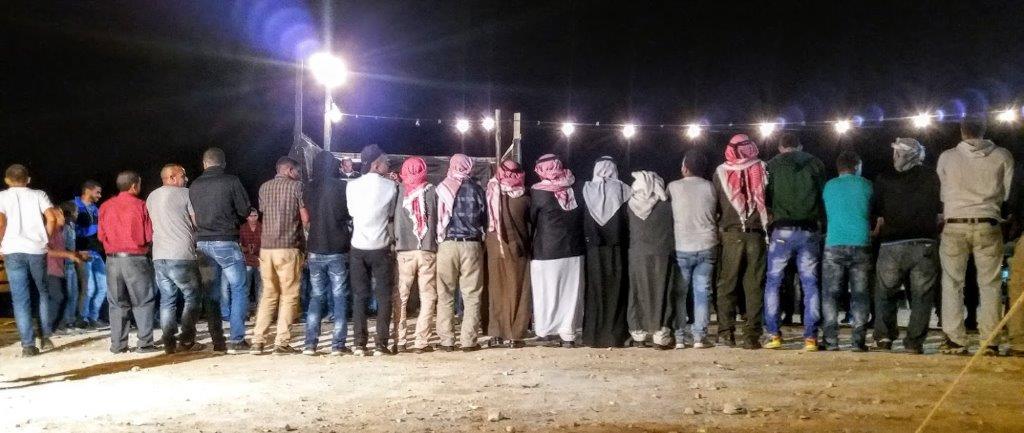
Greeting behavior
Greeting behavior is highly dependent on culture. For example, in the Netherlands in close encounters one regularly greets complete strangers (Hofstede, 2001), while in Israel and in the Palestinian Authority this seems to be highly uncommon. When meeting with Bedouins one needs to get into the habit of certain aspects of the encounter that may seem strange to the Westerner. First, as a man, one only has access to Bedouin men and not to women. I will expand later on issues related specifically to women and men, and to the relations between them. Then, in Western Europe Caucasian male academics tend to shake hands when they meet, and say their name. Not presenting yourself with your name would be perceived as unmannered. When meeting a group of Bedouins, one usually greets those present with a “salaam aleikum”, Arabic for “peace upon you”, and shakes hands with all. Names are mostly left unmentioned.
In the West, men may hug friends, with possibly some patting on the back. Kisses are reserved for encounters with women or now and then male family members. The number of expected kisses varies between countries. Israelis tend to kiss twice; the Dutch tend to three kisses. For Bedouin men it is customary to kiss four times when meeting after a substantial separation; kisses are mostly cheek-to-cheek. In contrast, with women (except for one’s mother, wife, daughters or nieces), no physical contact is allowed. Bashar anyway is not so much into bodily contact; he seems to kiss and touch his friends less than many other Bedouins or Palestinians I met. When we meet, we usually shake hands, as he does with many others. With other Bedouins or Palestinians, I shake hands or sometimes kiss (the Bedouin style).







